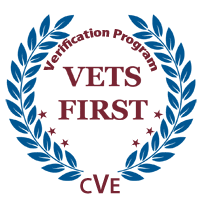Today I arrived back in Atlanta, Georgia after attending the National Veteran Small Business Engagement (NVSBE) in St. Louis, Missouri. In general, the NVSBE is always a good experience, if only because I have the chance to network and meet up with folks I only communicate with on the phone and via email the rest of the year.
The NVSBE is also an opportunity to (in many cases) get the early scoop on the policies in the pipeline at the U.S. Department of Veterans Affairs (VA). This year, I found none more fascinating than the VA’s proposed policy of “tiered evaluation” as a means to complying with the Kingdomware mandate, which was presented during a general session featuring three VA higher-ups.
And what, pray tell, is the Kingdomware mandate? Many of you already know, especially if you’ve been following this blog for a while. In a nutshell, Kingdomware was a Supreme Court case where , in a unanimous ruling, the Court held that under 38 U.S.C. § 8127(d), the VA must set aside procurements for competition among veteran-owned small businesses ”if a contracting officer has a reasonable expectation that two or more small businesses owned and controlled by veterans will submit offers and that the award can be made at a fair and reasonable price that offers the best value to the United States.”
This provision applies to orders placed against the Federal Supply Schedules (FSS), and a lot of businesses were very excited about the ruling. Finally, the VA was mandated to provide opportunities to veteran-owned businesses on the schedules. More work – hurrah! Right?
Maybe not. . .
Since this ruling came down during the summer of 2016, a fair number of veteran business owners have been complaining that the VA has been trying every tactic possible to circumvent the ruling. In fact, during the general session at the NVSBE, one well-informed gentleman whose business specializes in office supplies stated that he had conducted extensive research to conclude that the VA was complying only 10% of the time.
On the VA’s end, they complain that “prep” work to determine whether they’ll get the requisite number of responsible bidders creates delays and extra costs in the procurement process. There’s also the question of how much more the VA should pay in order to buy from veterans (i.e., what is “fair and reasonable?”). These aren’t unreasonable concerns.
During this general session at the NVSBE, the VA rolled out its new “tiered evaluation” approach to contracting under the FSS. It’s pretty simple – when awarding under the FSS, the VA will permit everyone to submit a bid – veteran-owned small business or not – and then place the offerors in different tiers for evaluation. Tier One, of course, is veteran-owned small businesses. If the VA can make an award in Tier One, they never have to look at the offers in the other Tiers. If they can’t, they’ll go to Tier Two (small business); then on to Tier Three (large businesses).
Do you see the issues with this that I do? First of all, read the statute: it says the VA must set aside the procurement based on its “reasonable expectation” that it will receive the requisite number of offers from veteran-owned small businesses. With tiered evaluations, there’s no “setting aside” (though I suppose one could argue that placing them in Tier One has that practical effect), and there’s no market research or other work to determine whether the opportunity should be set aside. They’re not “expecting” anything because they’ve done no advance work or research, effectively making it a free-for-all.
Second of all, what about the businesses in Tier Two and beyond? Even if the opportunity calls for a Request for Quotations, which is simpler to respond to than a Request for Proposals, those folks are still doing the work in researching and responding to an opportunity, knowing it might be a sunk cost because there’s the chance no one will even look at their proposal even if they offer the lowest price. Because the VA isn’t doing its work, these folks are picking up the slack.
Problems aside, think about the practical effect. We want the VA to be awarding to veteran-owned small businesses, right? If they implement tiered evaluation for every opportunity rather than doing the prep work to set aside to veteran-owned small businesses, one could argue that they’re uniformly complying with the effect meant by Kingdomware in giving the work to veteran-owned small businesses. That’s what we want, so is obtaining the effect worth the other issues?
What do you think? This is a developing policy, so perhaps this will never see the light of day. Should it or shouldn’t it? (If you would like to remain anonymous in commenting, I can change your “handle” to anything you like).
*Did you find this article informative? If so, sign up for Sarah Schauerte’s legal blog at https://legalmeetspractical.com.









